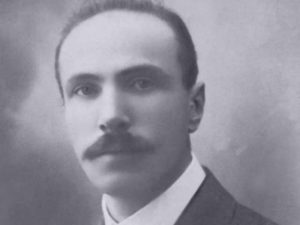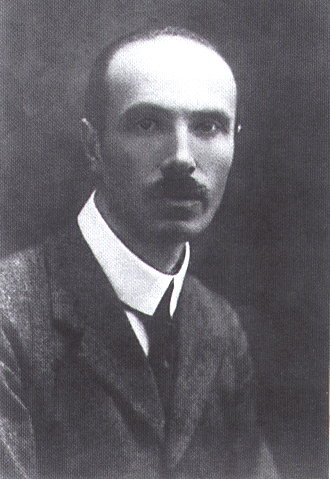Moreschi, Carlo
 Carlo Moreschi (Cermenate, February 28th 1876 – Pavia, May 24th 1921) enrolled in Medical School in Pavia in 1894. He attended the General Pathology Laboratory directed by Nobel prize winner Camillo Golgi, taking in his rigorous method, and started to publish scientific works. He graduated in 1900 and had a short teaching experience as assistant to the Demonstrative medical pathology chair at the institute directed by Luigi Devoto. He then decided to leave for Germany to specialize at the Koenigberg Hygiene Institute, directed by renown bacteriologist Robert Pfeiffer. During those years, Moreschi focused chiefly on immunology, writing works that preceded Robin Coombs’ research on red blood cells agglutination. The anti-haemoglobin is indeed known as the Moreschi-Coombs test.
Carlo Moreschi (Cermenate, February 28th 1876 – Pavia, May 24th 1921) enrolled in Medical School in Pavia in 1894. He attended the General Pathology Laboratory directed by Nobel prize winner Camillo Golgi, taking in his rigorous method, and started to publish scientific works. He graduated in 1900 and had a short teaching experience as assistant to the Demonstrative medical pathology chair at the institute directed by Luigi Devoto. He then decided to leave for Germany to specialize at the Koenigberg Hygiene Institute, directed by renown bacteriologist Robert Pfeiffer. During those years, Moreschi focused chiefly on immunology, writing works that preceded Robin Coombs’ research on red blood cells agglutination. The anti-haemoglobin is indeed known as the Moreschi-Coombs test.

In the meantime, he obtained the licence to lecture on Demonstrative medical pathology at the University of Pavia.
His work, which for the entirety of his short life saw him divided between Italy and Germany, dealt with immunology, pathology and clinical medicine.
During World War I, Moreschi enrolled as military doctor; in 1916 he then accepted a role teaching Clinical and medical pathology in Sassari.
In 1920 he founded the magazine Haematologica, together with Adolfo Ferrata. In the same year he was given the chair of Clinical medicine in Messina. The following year, however, he suddenly passed away, in Pavia, due to an extremely violent case of haemorrhagic smallpox.
